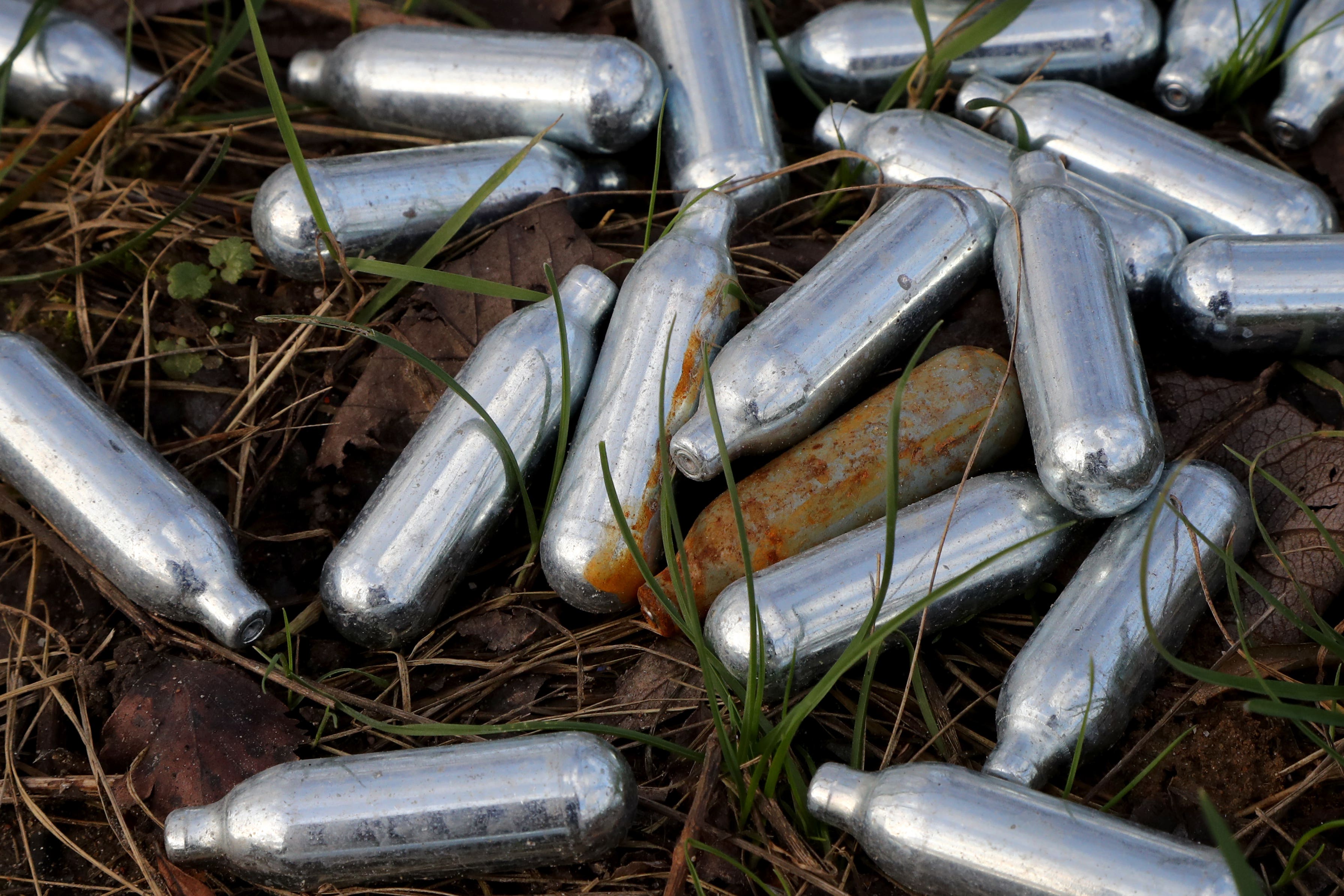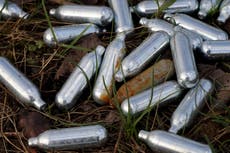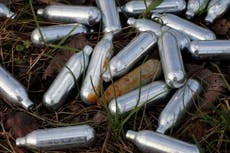How banning laughing gas will just make things worse
Why? Because, argues addiction expert Ian Hamilton, for all the many harms those silver nitrous oxide capsules can do to your body (and our streets), making it a class C drug will only increase the risks


Nitrous oxide, more commonly known as laughing gas, has surged in popularity in recent years and is now second only to cannabis as the drug of choice among those aged 16 to 24.
It may have a lighthearted name but frequent use can cause significant damage to the nervous system – producing paralysis in extreme cases. More commonly it induces peripheral neuropathy, which means tingling in the arms and legs, as well as bowel problems, erectile dysfunction and incontinence.
The government has announced it is to be banned from the end of this year, becoming a class C drug. The crackdown will see those caught selling the drug facing up to 14 years in prison. Possession of nitrous oxide could result in a two-year prison sentence, an unlimited fine or both.
But as an expert in addiction, I believe the government is seriously misguided in its approach. Criminalising the drug is only going to increase the risks to users who will stop seeking out help when they are in trouble. It will also do nothing to clean up the streets of the small silver capsules that users leave behind – and, in fact, could make that problem worse.
It is important to note that serious complications from nitrous oxide are rare and a result of high doses, rather than occasional recreational use.
But the newly proposed punishments fit with the Home Office’s agenda of being seen to be tough on crime. This political theatre is a complete overreaction to a relatively benign drug when compared to the harm that other drugs create – including our favourite national drug, alcohol.
While the alcohol industry has proved to be effective in lobbying the government to ensure a minimal impact on its product, nitrous oxide has no such advocate other than the businesses that rely on it. Nitrous oxide is commonly used in health as an anaesthetic and in catering for making whipped cream.
This is where the new policy announcement will run into trouble when the ban takes effect. It is easy to foresee how messy enforcing this new ban will be. How will law enforcement be able to distinguish between legitimate use for catering and those looking to use the drug recreationally?
Making a mockery of their own scientific advisers, the government ignored their view that banning the drug would be a disproportionate step when considering the evidence in relation to the harms and risks associated with using the drug. Why even have scientific advisers if you choose to ignore their expert opinion, which is based on the assessment of scientific evidence?
However, that is trivial in comparison to the real harm this latest crackdown could have. Instead of reducing the potential risk from nitrous oxide, this new policy will more than likely ratchet up the health harms for young people. As it stands, anyone experiencing problems following exposure to the drug can seek medical help without fear of breaking the law. Changing this to making possession and use a class C offence will not eliminate its use – but it will make young people wary of seeking help at the very point they need it, fearing a criminal conviction will follow admission of using nitrous oxide.
Even if they weren’t aware of this unintended consequence when considering the ban, ministers were warned by a number of neurologists, who recently wrote to the home secretary outlining their concerns about the consequences a ban would have.
Beyond the health risks that nitrous oxide poses, there is the more visible and widespread problem of littering by discarded canisters. Banning the drug is unlikely to address this social problem, as it creates a disincentive to be tidy and take your drug paraphernalia home and dispose of the evidence in your own bin.
Banning drugs has so far had little success in mitigating the harm they cause medically, socially or environmentally. This latest get-tough approach will be no different, as the home secretary is operating in an evidence-free zone. It is a lazy (albeit popular with voters) option that has proved irresistible to successive home secretaries. The more challenging but effective route of listening to scientific advice and acting on it is rarely chosen by government.
Providing education about drugs like nitrous oxide to young people, based on the enlightened knowledge that some young people will always use drugs and a small number will encounter problems, doesn’t have the same vote-winning punch as “getting tough”. Sadly, it is young people who will pay the price of politicians chasing votes rather than trying to protect the people they should be protecting.
Ian Hamilton is a senior lecturer in addiction and mental health at the University of York




Join our commenting forum
Join thought-provoking conversations, follow other Independent readers and see their replies